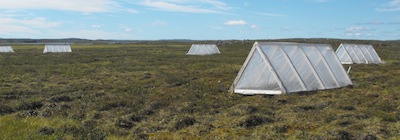
A close-up of oxygen bubbles. (Credit: Mycatkins, flickr.com)
The early Earth was characterized by the absence of oxygen which first rose due to photosynthesis during the Great Oxidation Event 2.3-2.5 billions years ago. Now, researchers have found markers in 2.95 billion year old rocks from South Africa that show oxygen was already at a significant levels. This finding shows that organisms were doing photosynthesis 500 millions years before the Great Oxidation Event in such a way that oxygen started to accumulate in shallow marine settings.
Original research paper published in the journal Nature Geoscience on March 23, 2014.
Names and affiliations of selected authors

